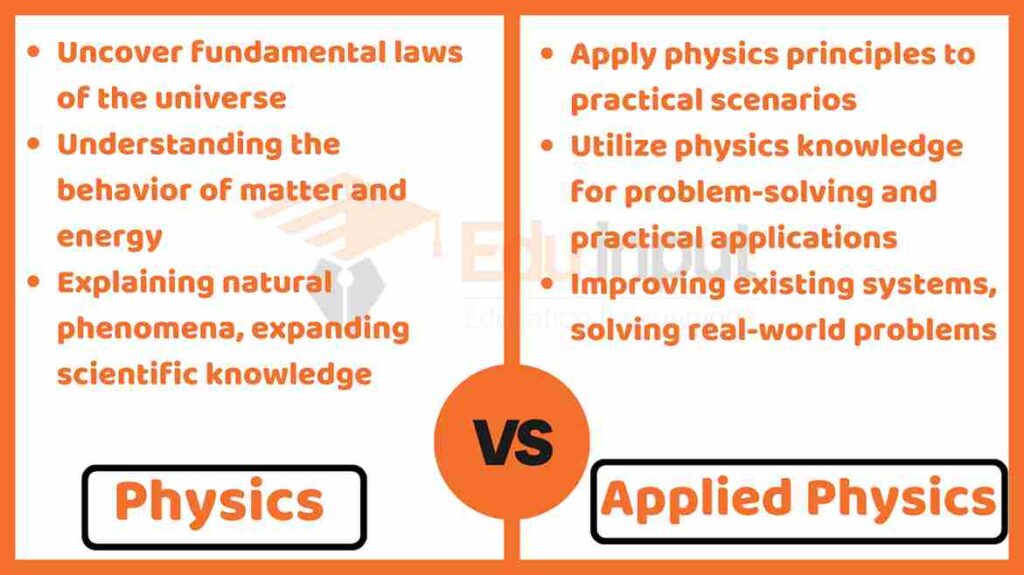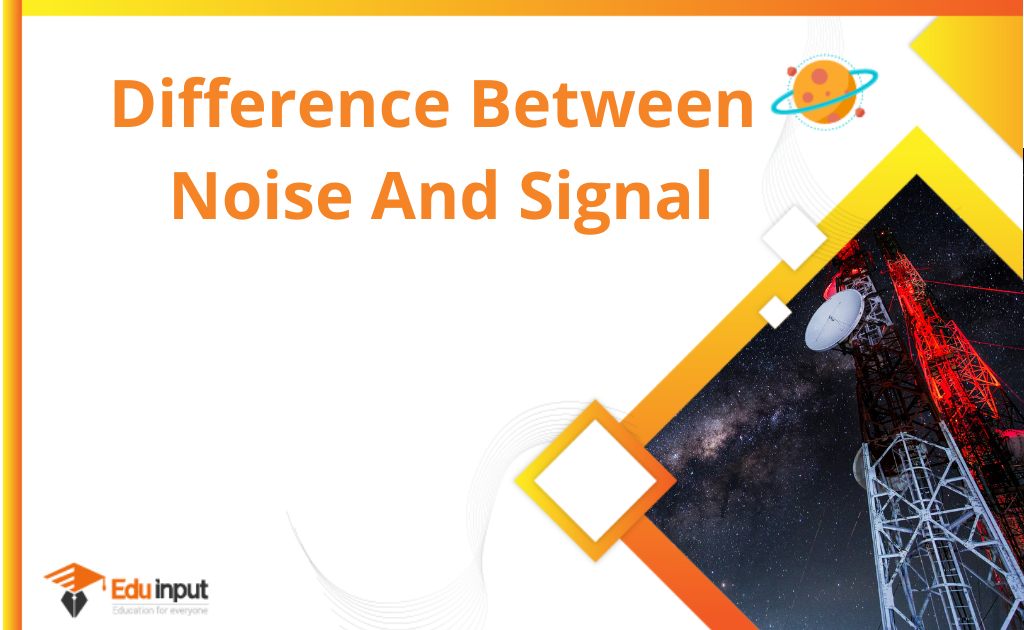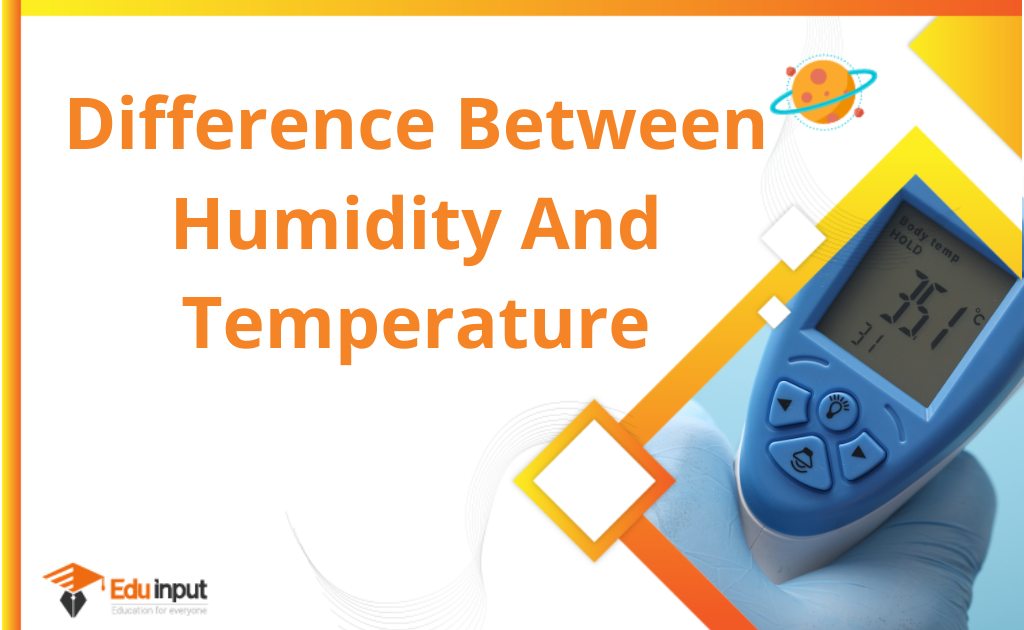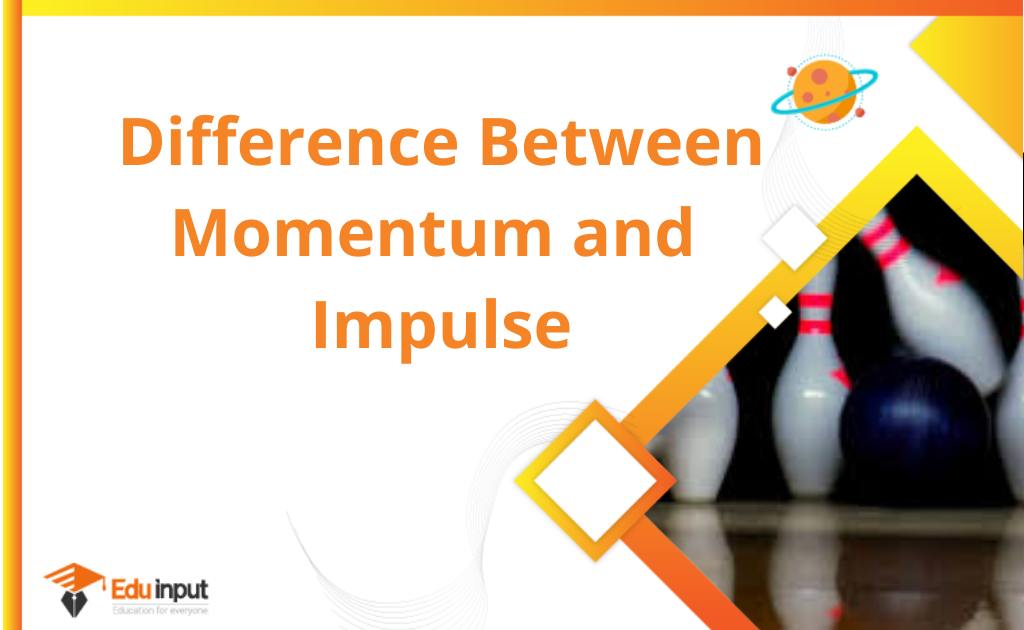Applied Physics vs Physics
The key difference between applied physics and physics is that Physics focuses on uncovering fundamental principles while applied physics utilizes these principles to address practical challenges and drive technological advancements. Both fields play vital roles in advancing scientific knowledge and finding solutions to real-world problems.

Physics and applied physics are integral to our understanding of the natural world and the development of innovative technologies.
What is Physics?
Physics is the scientific study of matter, energy, and their interactions. It aims to unravel the fundamental laws that govern the behavior of the universe. Physics helps us comprehend the natural world by providing explanations for various phenomena, from the tiniest subatomic particles to the vastness of the cosmos.
Physics encompasses a broad range of concepts and principles that form the foundation of the discipline. Some key areas of study in physics include classical mechanics, electromagnetism, thermodynamics, quantum mechanics, and relativity. These principles help us understand the behavior of matter and energy, from the motion of celestial bodies to the behavior of subatomic particles.
What is Applied Physics?
Applied physics takes the principles and theories established in physics and applies them to real-world problems. It bridges the gap between theoretical knowledge and practical applications enabling advancements in various fields such as engineering, technology, and medicine.
Applied physics builds upon the core concepts of physics and applies them to practical situations. It focuses on solving real-world problems by utilizing the principles and methodologies established in physics. Applied physics plays a crucial role in various industries, including electronics, telecommunications, energy, materials science, and healthcare.
Applied Physics vs Physics
These are some key differences between physics and applied physics.
Focus and Scope
One of the primary distinctions between applied physics and physics lies in their focus and scope. Physics focuses on understanding the fundamental laws of nature and developing theories to explain natural phenomena. It aims to expand our knowledge of the universe and uncover the underlying principles governing the physical world.
On the other hand, applied physics is more focused on the practical application of physical principles. It involves using the insights gained from physics to develop innovative solutions to real-world problems. Applied physicists work towards improving existing technologies, designing new devices, and enhancing the efficiency of systems across various industries.
Practical Application
Physics primarily deals with theoretical concepts and principles. While it may have practical implications in the long run, immediate practical applications are not its primary concern. Theoretical physicists aim to understand the universe at a fundamental level, often pursuing abstract concepts and mathematical models.
Applied physics, on the other hand, emphasizes practical applications from the start. Applied physicists use the theories and principles established by physics to create tangible solutions to real-world challenges. They work in fields such as engineering, materials science, nanotechnology, optics, and many others, contributing to advancements in technology, healthcare, energy, and other industries.
Research Objectives
In physics, the main objective of the research is to uncover new theories, expand scientific knowledge, and enhance our understanding of the universe. Theoretical physicists often work on abstract concepts and conduct experiments to validate or challenge existing theories. Their research contributes to the theoretical framework of physics and opens new avenues for exploration.
Applied physics, on the other hand, focuses on research that directly addresses practical problems and technological advancements. Applied physicists strive to develop innovative solutions to improve existing technologies or create entirely new ones. Their research is driven by the need to find practical applications for scientific principles and enhance the functionality of systems.
Career Paths
Physics offers a broad range of career paths, including academic research, teaching, and working in government or private research institutions. Physicists can specialize in various sub-disciplines such as astrophysics, quantum mechanics, particle physics, and more. They contribute to expanding our knowledge of the universe and pushing the boundaries of scientific understanding.
Applied physics provides opportunities for careers in industries that require the application of scientific principles. Applied physicists can work in fields such as engineering, telecommunications, renewable energy, materials science, and healthcare. Their expertise is valuable in developing and improving technologies, optimizing systems, and solving practical problems.
| Physics | Applied Physics | |
|---|---|---|
| Objectives | Uncover fundamental laws of the universe | Apply physics principles to practical scenarios |
| Approach | Understanding the behavior of matter and energy | Utilize physics knowledge for problem-solving and practical applications |
| Focus | Understanding behavior of matter and energy | Developing innovative technologies, solving engineering challenges |
| Applications | Explaining natural phenomena, expanding scientific knowledge | Improving existing systems, solving real-world problems |
| Collaboration | Collaboration within the field of physics | Interdisciplinary collaboration with other fields |
| Knowledge | Emphasis on core physics concepts and theories | Integration of knowledge from various disciplines |
Related FAQs
How is applied physics different from physics?
Applied physics focuses on the practical application of physical principles to solve real-world problems, while physics explores the fundamental laws and theories that govern the behavior of the universe.
Is applied physics a good degree?
Whether applied physics is a good degree depends on your interests and career goals. It can lead to diverse opportunities in industries such as engineering, technology, research, and development.
What is applied physics used for?
Applied physics is used for designing and improving technologies, developing advanced materials, optimizing energy systems, analyzing data, creating medical imaging devices, and more.
What are BS applied physics and BS physics?
BS applied physics” refers to a Bachelor of Science degree program in applied physics, which combines core physics courses with specialized coursework in applied areas. “BS physics” refers to a Bachelor of Science degree program in physics, which primarily focuses on the theoretical and fundamental aspects of physics

 written by
written by 





Leave a Reply